Keeping your home at comforting temperatures all year round can sometimes become challenging if your HVAC system is not running at its best and begins to give you issues. When warm weather hits, the last thing you need is for your HVAC unit to be off.
While the average lifespan of an air conditioner unit is ten years, there are several reasons why your AC won’t turn on or run efficiently. And when these occur, you might need an HVAC repair in Houston.
Unless you have prior knowledge and experience in the HVAC field, especially when serious issues arise, addressing a professional is in your best interest. Some signs of a failing air conditioner system are more obvious than others, but if you notice something wrong, you should probably ask for professional help.
The great news is that not all system malfunctions will spell total doom, and you might still be able to have it fixed. So what should you do if your HVAC system is not working?
What to Do if Your AC Stops Working?
If your AC stops working, you can start by checking some of the most common reasons why your air conditioner might not turn on.
Check for Thermostat Issues
It is vital to understand that your thermostat represents a way of communicating with your HVAC system. So, basically, if your thermostat is not running or working correctly, there is no way for your air conditioner to know that it should have been switched on.
You can start by looking at the thermostat’s screen, and if it’s off or showing a blank display, try to switch it on. If the thermostat is not turning on, the batteries could be dead, so replace them.
If the thermostat is still not switching on, you might either need a new thermostat or a professional technician to come in and look at it.
Check Your HVAC System’s Power Source
One of the most common reasons for an air conditioning system not working is lack of power. So before calling for help, ensure your air conditioner has power running to it. Check the exterior unit to see if it’s plugged in and if the exterior switch near the condenser is on.
Then, you should go to your house’s electrical panel and see whether the breakers powering the HVAC’s condenser and air handles are functioning correctly.
Change the Air Filter
When was the last time you replaced your air filter? Do you know that a clogged air filter might prevent the heating and cooling system from starting? The truth is that a dirty air filter can limit airflow through the system, causing it to run harder and longer than it usually would. As a result, the air conditioner could overheat and shut down to protect itself from damage.
If you detect that your air conditioner is blowing warm air, one of the first things you have to do is check the air filter. Then replace the dirty air filter and insert it properly. It’s also vital to give your AC unit some time to cool down if it recently stopped working.
Look for a Refrigerant Leak
There are various ways you could determine if you have a refrigerant leak before your air conditioner stops turning on. If the AC is not cooling your home, if you hear hissing sounds, or notice that your electric bills are going for no apparent reason, you might have a refrigerant leak.
Please consider this a severe issue that could lead to refrigerant poisoning if left unattended. In fact, the Environmental Protection Agency only allows licensed and certified technicians to buy certain refrigerants, so you have to contact an HVAC professional to perform this task.
The Evaporator Coil Could Freeze
When looking to find out why your air conditioning is not working, consider that the evaporator could be one of the causes of warmer temperatures. The evaporator coil contains refrigerant, absorbing heat. If the airflow is diminished, a layer of ice could form on the coil, resulting in warm air or no air from your AC supply registers.
The lack of airflow could result from the low refrigerant, dirty air filters, or obstructed return air in the ductwork. At this stage, the best thing you can do is get in touch with a professional HVAC technician to check and repair your air conditioner.
Check the Ductwork
Unfortunately, air may escape through tiny leaks or holes in the ductwork. That is why you should check it to determine if any cold air is coming out and whether it needs repairs or replacements. Typically, flexible ductwork lasts less than metal and might need to be replaced if it has holes.
In comparison, metal ductwork could be repaired by sealing the cracks with duct tape. To make your ductwork last longer and eventually protect it from high temperatures, you can get extra insulation wrapping with foil backing.
When Should You Call an HVAC Professional?
Even though there are some things you could do on your own to prevent common issues with your AC, in some instances, it is recommended to contact a professional. While it is indicated to service your AC twice a year, once before the cooling season and once before the heating season, an issue could occur at any time. If you are facing the following problems, it is in your best interest to contact an HVAC professional:
- Improperly installed AC: if you feel that your AC was not installed correctly, call a professional to fix or reinstall it as soon as possible.
- Strange noises coming from the HVAC unit: suppose your AC is making loud clanging, banging, or other rather unusual noises. If you hear such sounds from the vents or air conditioner, you might face a severe issue you cannot fix on your own. However, an HVAC professional will know how to deal with the issue and find a quick solution.
- Problems with the outdoor unit: if the outdoor unit is indeed the problem, never try to fix it yourself. While you could replace the thermostat batteries and change the air filters yourself, fixing complicated mechanical issues could result in losing your warranty. For actual maintenance problems, it is always best to call for licensed and certified help.
Imagining your home without a functioning HVAC system is challenging. Moreover, no one should suffer without an AC unit. However, it is only normal to not possess detailed information and knowledge of heating and cooling air systems if something occurs.
When the system is not working or functioning right, the best thing to do is to get in touch with a technician. You might be facing complicated issues with your AC, such as failed parts, dirty coils, clogged drain pain, or a refrigerant leak.
Such types of tasks must be left to the professional to avoid complete damage to your system. And most importantly, if you notice any of these issues, do not wait. Waiting for your AC unit to fix itself will eventually result in more costly repairs or permanent damage. Contact an HVAC technician and let them help you out today!


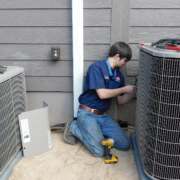
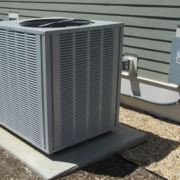
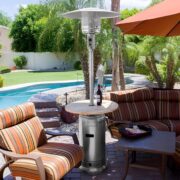
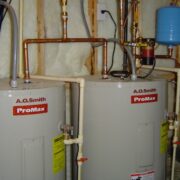
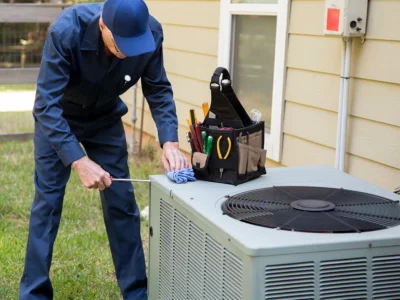
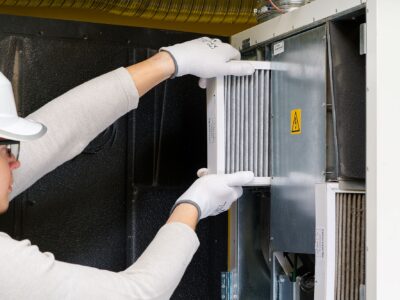
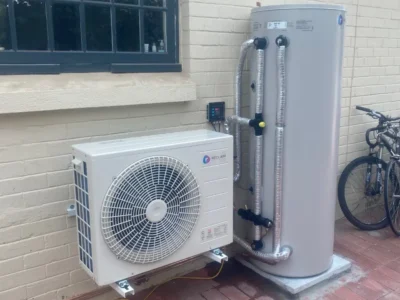
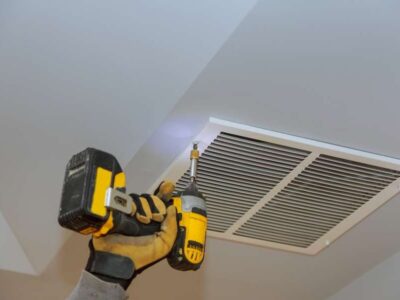
Comments